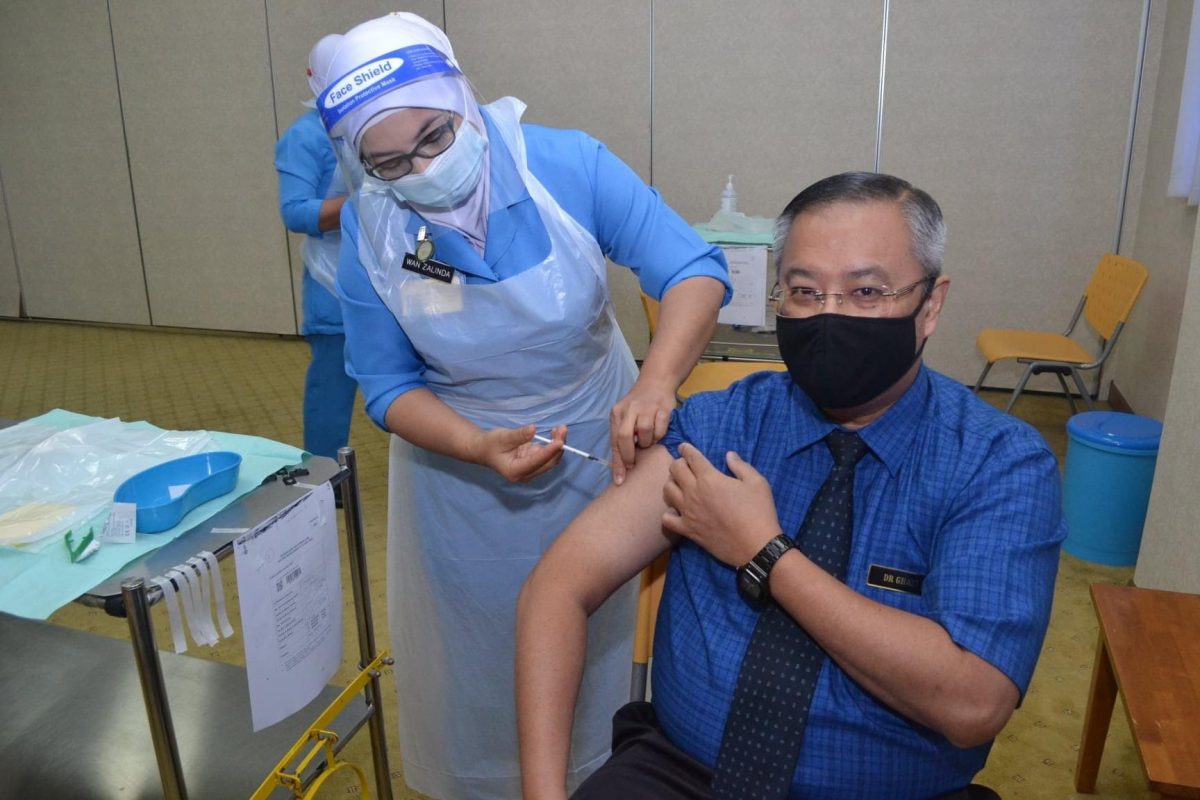KUALA LUMPUR, April 14 — Covid-19 vaccines prevent deaths, severe disease, and even transmission of the virus, said an infectious disease consultant from Sungai Buloh Hospital.
A real-world study conducted by the United States’ Centers for Disease Control and Prevention (CDC) showed that mRNA vaccines — Pfizer-BioNTech and Moderna — were 90 per cent effective in preventing any Covid-19 infection, including asymptomatic cases.
“Naturally allowing Covid-19 to run its course is dangerous,” Dr Benedict Sim Lim Heng said in a webinar on Covid-19 vaccines organised by the Institute for Clinical Research last week.
According to Dr Sim, approximately 16 per cent of Covid-19 cases in Malaysia aged above 60 with comorbidities developed severe disease, compared to 6.21 per cent of coronavirus patients from the same age group without any other health condition.
A total of 9.36 per cent of Covid-19 patients aged 40 to 60 with comorbidities developed severe Covid-19 disease, compared to 4.95 per cent of patients in the same category without other medical issues.
“We need to prioritise the elderly, we need to prioritise those with comorbidities because if we don’t protect them first, then the hospitals will continue to see the worst of Covid-19, which is deaths and severe disease,” Dr Sim added.
Although Phase Two of the national Covid-19 vaccination programme is due to start on April 19, only about two million people targeted under that phase — people aged above 60 and those with comorbidities or disabilities — have signed up for their jabs as of March 29.
Dr Sim listed possible complications which can occur among Covid-19 patients, such as post-intensive care syndrome, venous thromboembolism (a condition in which a blood clot forms most often in the deep veins of the leg, groin or arm), cardiovascular complications, acute kidney injury, acute liver injury, neurological complications, long Covid (symptoms persisting for weeks or months after Covid-19 infection), cardiac arrest, and septic shock.
Based on the United States’ Morbidity and Mortality Weekly Report released on March 29 this year, the daily Covid-19 incidence rate among the unvaccinated in the US is 1.38 per 1,000 people. This means that among unvaccinated communities in the country, more than one person among 1,000 people are contracting the coronavirus.
The Covid-19 incidence rate was 0.19 per 1,000 people in the US among those who were vaccinated partially. This shows that receiving the first dose of Covid-19 vaccine was 80 per cent effective in protecting recipients from being infected by the coronavirus.
The Covid-19 incidence rate fell to 0.04 per 1,000 people in the US among those who were vaccinated completely (received both doses), which means Covid-19 vaccines are 90 per cent effective with complete inoculation.
The US has authorised three Covid-19 vaccines — Pfizer-Biontech, Moderna and Johnson & Johnson — and has been administering the first two vaccines that require two doses for complete vaccination.
Dr Sim, who cited the reports, said: “The vaccines protect the vaccinee, their family members and ideally one day, we will achieve herd immunity when there are enough people vaccinated in the society.
“The disease can come and come again in different ways. Looks like we really need something else than the current public health interventions to give us a hope to normalise things again.”








